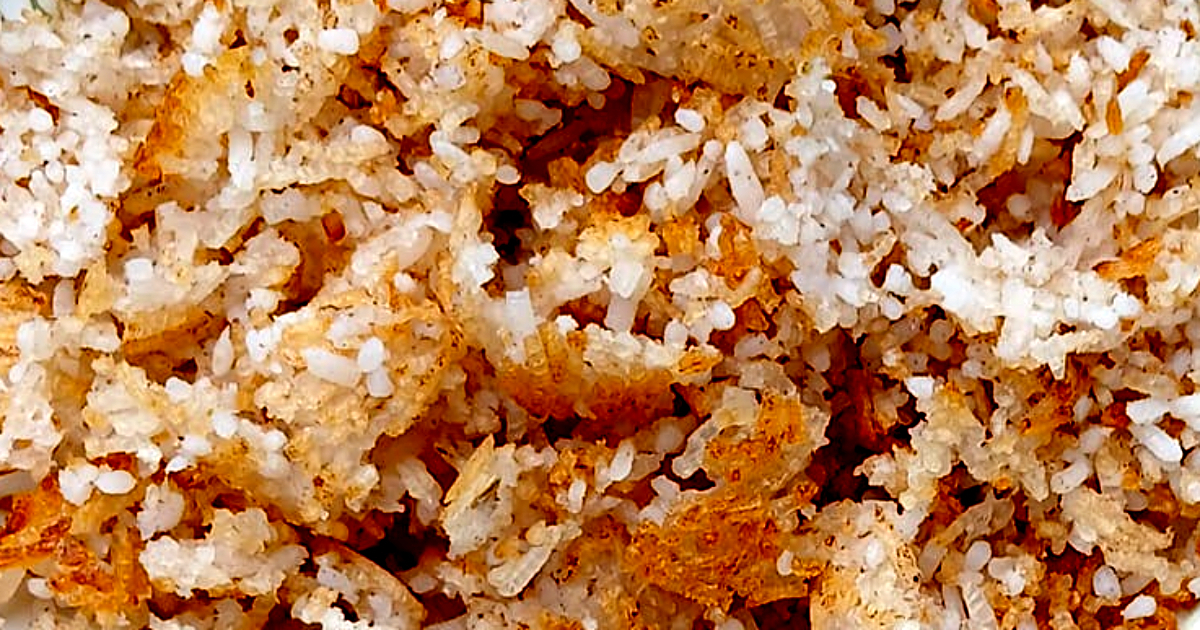
The farmer Delio Ramírez Rosales used his social media to denounce the poor diet that Cubans suffer from and cited as an example the plate of food he "tasted" this Wednesday, for which he thanked God.
The rice crust, that burnt rice at the bottom of the pot (which many hungry Cubans have been fond of), was the “delicacy that Ramírez Rosales savored” before going to bed early to wake up again in the furrow.
"I work like an animal from dawn to dusk, and sometimes I have a rough time. Today I had to eat plain rice husks. I wanted to accompany it with sugar water, and when I checked, I had no sugar... And I thanked God for the husks," said the farmer on Facebook.
Like him, there are hundreds of thousands of Cubans who suffer from "food insecurity," a euphemism used by international organizations to avoid words like "hunger" or "famine," worn out by the use of vocabulary that describes the problems and misery of poor countries.
According to the Food and Agriculture Organization of the United Nations (FAO), a person suffers from food insecurity when they lack regular access to sufficient safe and nutritious food for normal growth and development, as well as for leading an active and healthy life. This may be due to a lack of food availability and/or a lack of resources to obtain it.
"Cuban farmers deserve recognition and respect, as we have become magicians to be able to produce," said Ramírez Rosales in July 2022, denouncing the abuses committed by state authorities through the agricultural company of Ciego de Ávila.
Back then, the agricultural producer complained about the abuse, disorganization, and obstacles he faced in the process of buying and selling root vegetables with the State, which intended to charge him for the fuel that Acopio used to collect his cassava production, which he sold for 250 Cuban pesos per quintal (100 kilograms), that is, at one peso per pound of the tuber, which at that time could sell for as much as 20 pesos.
The food insecurity experienced by Ramírez Rosales and others like him is precisely due to this: the State abuses farmers and ranchers, which affects their wallets (or resources to obtain food), resulting in a decline in food production/availability.
However, for the president of the National Assembly of People's Power of the regime, Estaban Lazo Hernández, the problem of food insecurity that Cubans face is that "we have lost the value of hard work."
Thus, so confidently, he said it during a visit he made in mid-March to Sancti Spíritus. There he also said gems like this: “We all got used to asking, when will this arrive? When will this come? When will I get this? And socialism is good because one man does not exploit another, but to have, one must work.”
According to Lazo's argument, Ramírez Rosales should be grateful, not to God, but to the so-called "revolution," which is what "gives" him the rice husk that he eats. Not to mention that the farmer has and uses Facebook, and "who would have thought that there would be people with cell phones here in the countryside?"
“Samuel, what are you eating? Is that raspa?” comedian Limay Blanco asked a child during a video call he made in June 2023 to his family, to whom he had given a refrigerator, and during which he noticed little Samuel eating a piece of raspa de arroz.
After ending the call so they wouldn't see him tearful, Limay explained in another livestream that he had to end his call with the family because the scene “broke me in two.”
“Samuelito having raspado for breakfast,” said the comedian with tears in his eyes. “I know I won’t be able to fix the world, but damn…! And I have to stay quiet. Today I can’t express myself. And if I bring him something now, the day after tomorrow Samuelito is still eating raspado.”
What do you think?
COMMENTFiled under: